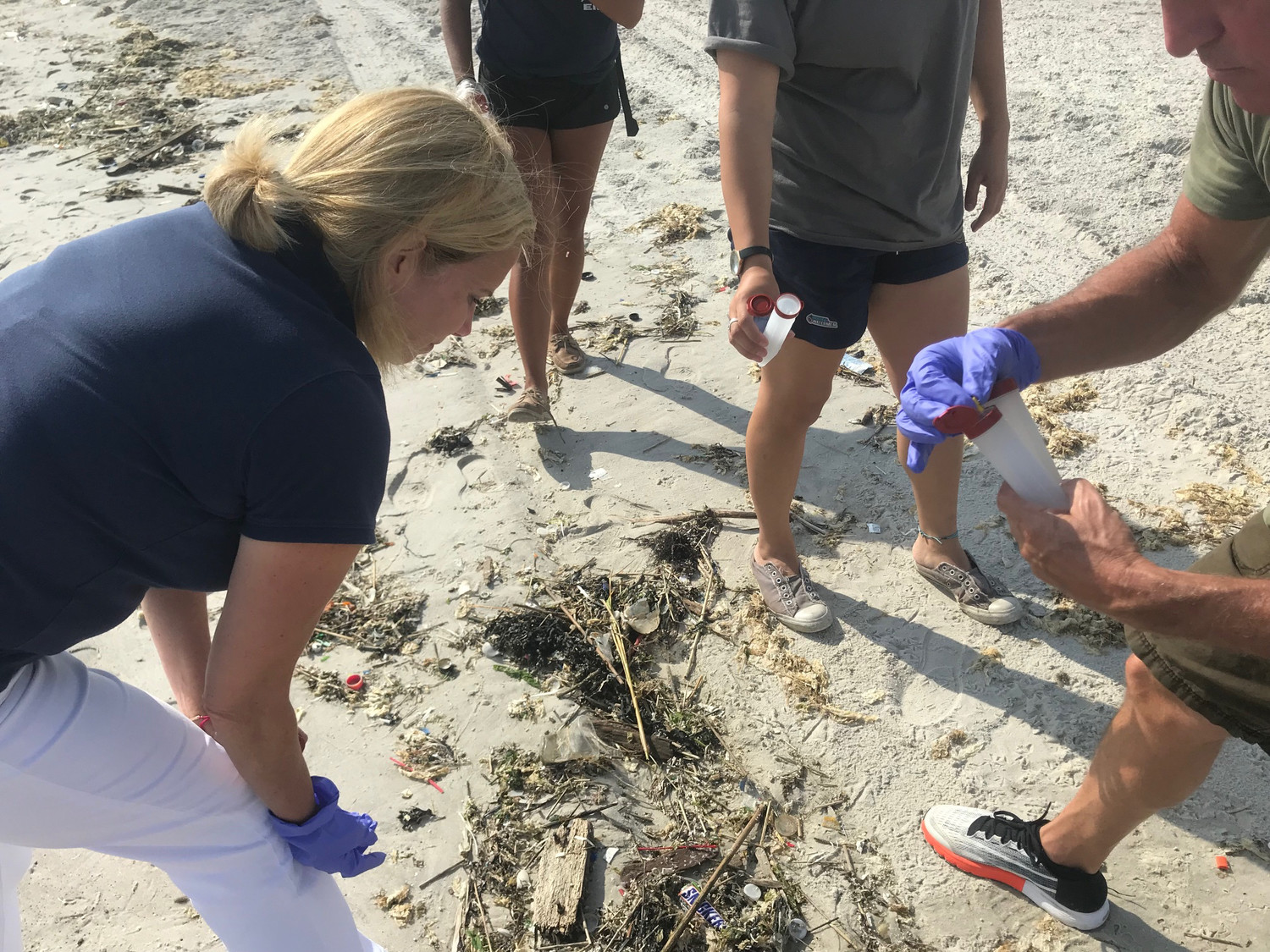City: waste not from Army Corps
Work paused after medical debris washed ashore
The U.S. Army Corps of Engineers suspended work this week on a coastal protection project as local and state agencies investigated the source of medical waste that washed ashore on multiple South Shore beaches Aug. 17 and 18.
The sand replenishment and dune construction in Long Beach, which is part of a $230 million coastal protection project, came to a halt after hypodermic needles and other medical waste washed up on the shore in East Atlantic Beach, Lido Beach and Atlantic Beach.
“We’ve suspended operations due to investigation of where it came from,” said Mike Embrich, an Army Corps representative, referring to the medical waste.
Town of Hempstead officials said they closed a number of beaches last week, including Lido Beach, Nickerson Beach, Hewlett Point Park and the Town Park at Sands.
On Aug. 18, the city posted on its website that city beaches would remain open. City officials said that Long Beach lifeguards were closely monitoring the area, and that Chief of Lifeguards Paul Gillespie had determined that the beaches and the ocean were safe.
According to Nassau County police, a Town of Hempstead lifeguard called 911 on Aug. 17, reporting that hypodermic needles had washed up on the shore. Police responded, removing and disposing of the needles, and no injuries were reported. Town officials said that between 50 and 60 items of medical waste, including more than 30 hypodermic needles, were discovered between Ohio Avenue in Long Beach and Clayton Avenue in East Atlantic Beach.
Town officials said that they had yet to determine the source of the debris, but it appeared that someone “dumped bathroom garbage and medical waste in some volume,” Town Supervisor Laura Gillen said.
Nassau County Police and the Nassau County Department of Health assisted in a two-day cleanup effort. “The beaches have been raked and cleared,” County Police Commissioner Patrick Ryder said at a news conference on Aug. 19.
“As the medical waste was discovered along the shores of the barrier island, the [Department of Environmental Conservation] asked the Army Corps to shut down their dredge on Saturday afternoon to investigate whether the waste was coming from our borrow area,” Acting City Manager Michael Tangney said at Tuesday’s City Council meeting, referring to the area a mile and a half offshore where sand is being excavated. “The pipeline was evaluated and no waste was found.”
The dredging was expected to resume Wednesday, Tangney said, adding that the DEC was investigating the matter, but did not believe the waste came from the borrow area. The Nassau County Police Department was assisting the DEC investigation.
Once the sand replenishment resumes, the Army Corps will work from Roosevelt to Pacific boulevards, moving east, according to the DEC’s website.
At the City Council meeting, several residents criticized what they called a lack of communication from the city after the medical waste was discovered, and questioned why the city did not close its beaches. “We did not receive any communication until after the beach closed at 7 p.m. [on Aug. 17] on the city’s Facebook and on the city’s website,” said resident Liz Treston.
“I think it was very irresponsible of us to allow people to go swimming when all the other South Shore beaches on the barrier island were closed out of concern for residents,” said former Republican Councilwoman Mona Goodman.
City Council President Anthony Eramo said that Gillespie, beach maintenance personnel and Tangney were monitoring the beaches, deemed them safe and subsequently decided to keep them open.
“As always, the health and safety of beachgoers is our first priority out here,” Gillen said on Aug. 19, “so we urge anyone who may come into contact with a potentially hazardous item to either call 911, or to tell a lifeguard or parks official and they will remove the hazard.”
Most blood-borne diseases die when exposed to air and saltwater, town officials explained, but they urged residents to call emergency medical personnel if anyone comes in contact with a needle or other medical waste.
“The discovery of medical waste has been jarring and is a cold reminder of issues we faced decades ago,” said State Sen. Todd Kaminsky, of Long Beach. “It is critical we get to the bottom of this, because our pristine beaches are what define us, and that must be preserved.”

 50.0°,
Fair
50.0°,
Fair 




